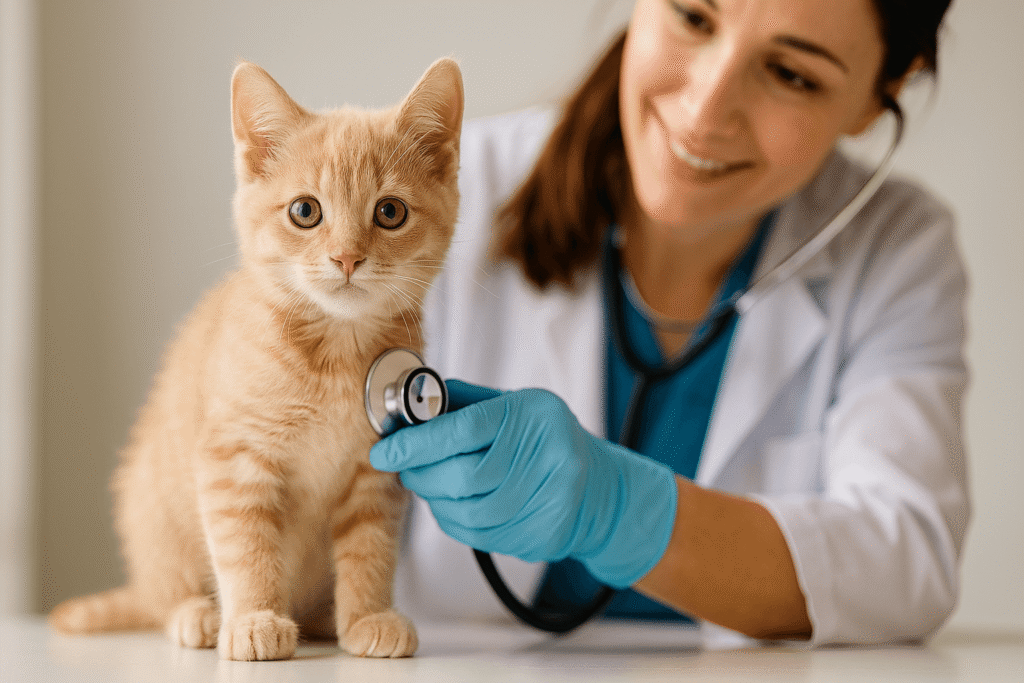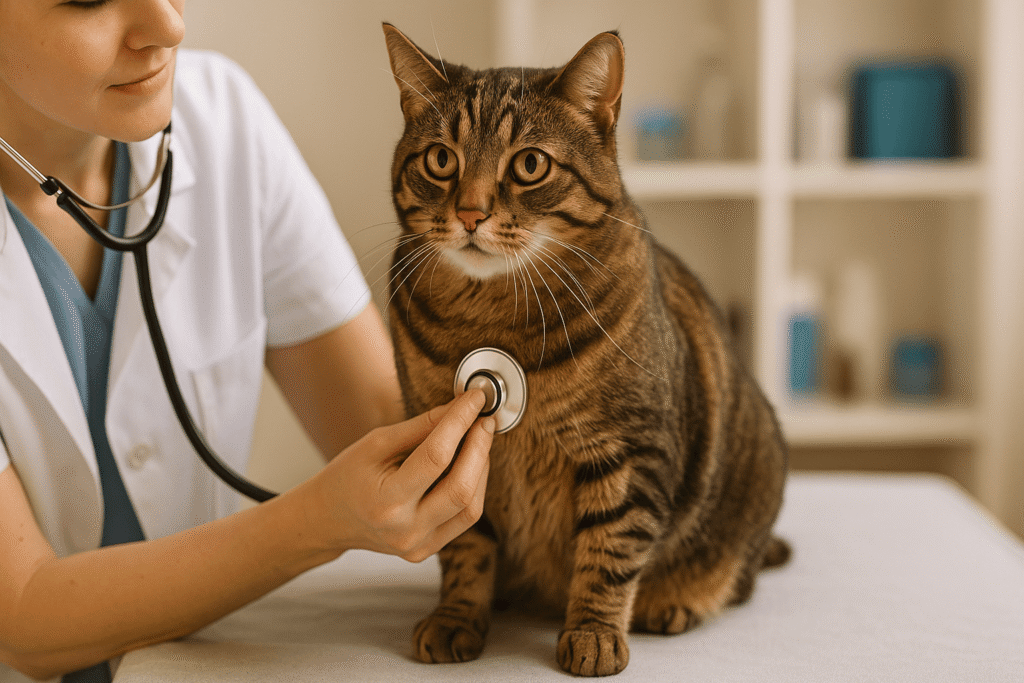How Often Should You Take Your Cat to the Vet?
Routine veterinary care is one of the most important parts of keeping your cat healthy. Cats are masters at hiding illness, so regular vet visits help catch issues early and ensure a longer, healthier life.
Whether you have a playful kitten or a senior feline, here’s a breakdown of how often your cat should see the vet—and why it matters.
Veterinary Schedule for Kittens (0–12 Months)
Kittens grow quickly and require frequent care to ensure proper development. The first few months are critical for vaccinations, disease prevention, and behavioral support.

Recommended visits:
- 6–8 weeks old: First vet check, vaccinations begin, and parasite screening.
- Every 3–4 weeks until 16 weeks: Follow-up vaccines and boosters.
- Around 5–6 months: Spaying or neutering, microchipping, and final check-ups.
During this time, the vet will monitor growth, address early behavioral habits, and set the stage for lifelong wellness.
💡 Tip: Early visits also help your kitten get comfortable with vet handling.
Adult Cats (1–10 Years)
Once your cat reaches adulthood, you should take them to the vet at least once per year—even if they appear healthy. Annual visits help detect silent health issues and ensure vaccinations and parasite prevention are up to date.
What to expect at an annual check-up:
- Full physical exam
- Vaccine updates (as needed)
- Dental health evaluation
- Parasite prevention review
- Baseline blood work (especially after age 5)
Indoor cats benefit just as much from regular vet care as outdoor cats. Even subtle changes in weight, behavior, or appetite can be early signs of illness.
Senior Cats (11+ Years)
Senior cats require closer monitoring as they are more prone to chronic conditions like kidney disease, hyperthyroidism, and arthritis.
Recommended frequency: Twice a year

Each visit may include:
- Comprehensive physical exams
- Blood and urine tests
- Blood pressure checks
- Nutritional and weight management guidance
- Monitoring for cognitive or behavioral changes
Biannual vet visits improve quality of life by catching age-related problems early when they are more manageable.
When to See a Vet Immediately
In addition to regular check-ups, you should take your cat to the vet right away if you notice any of the following:
- Sudden appetite loss or weight change
- Persistent vomiting or diarrhea
- Lethargy or hiding more than usual
- Labored breathing or coughing
- Straining to urinate or not urinating at all
- Unexplained limping or signs of pain
Cats often suffer silently—trust your instincts if something feels off.
Final Thoughts
Veterinary care isn’t just for when your cat seems sick. Annual or biannual check-ups play a key role in prevention and early detection, which leads to better outcomes and lower long-term costs.
By understanding your cat’s needs at every life stage, you’ll be a step ahead in giving them the healthiest and happiest life possible.